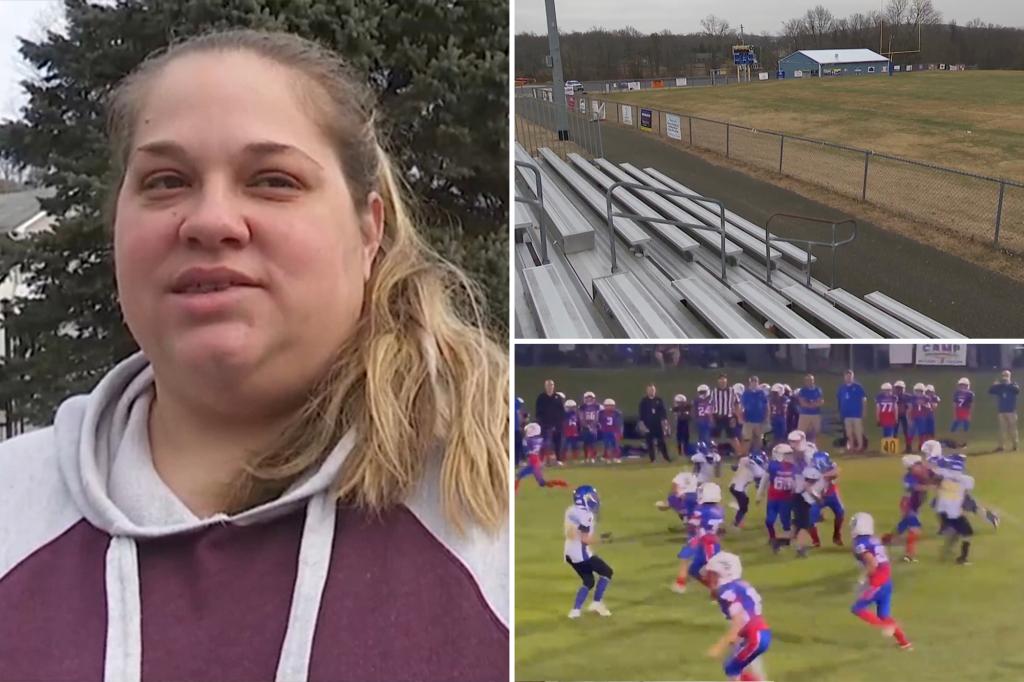In the quiet town of Washingtonville, New York, a youth football league found itself embroiled in controversy after five young players, aged 8 to 11, were expelled, alongside their parents and a teenage volunteer cheerleading coach. The Washingtonville Wizards Youth Football and Cheer League (WYFCL) cited alleged parental misconduct concerning team management and bullying as the reason for the drastic action, a decision that sparked outrage and heartbreak among the affected families. The expelled parents, who were also board members, had raised concerns about coaching styles, playing time distribution, and the handling of bullying incidents within the teams. These concerns, voiced repeatedly, ultimately led to their removal from the board and, subsequently, the expulsion of their children from the league.
The situation escalated when Nicole Berhau, mother of one of the expelled players, 10-year-old Nolan, publicly accused the league of mishandling a bullying situation involving her son. Berhau claimed that Nolan had been subjected to bullying throughout the season, yet the league, instead of addressing the issue, allegedly blamed Nolan himself. Her frustrations boiled over on social media, where she expressed her anger and disappointment, emphasizing that while she accepted her removal from the board, the expulsion of her innocent son was unacceptable. Berhau challenged the league officials to personally inform Nolan of their decision, highlighting the emotional impact of their actions on the young boy. The expulsion meant Nolan would be barred from the league he had been a part of for the past five years, a prospect that deeply distressed his mother.
The WYFCL, located approximately 65 miles north of Manhattan in Orange County, formally notified the affected families of their expulsion through a letter. The letter stated that the decision was unanimous and that the families were no longer members of the league. The teenage cheerleading coach, whose mother was among the expelled board members, was also removed from her volunteer position. The league’s actions sparked a wave of criticism, with many questioning the proportionality of the punishment and its impact on the children involved. The expulsion effectively severed the children’s ties with their teammates and the sport they loved, leaving them with a sense of injustice and confusion.
Despite the backlash, the WYFCL maintained that they had acted within their rights and followed all state-approved bylaws. League President James Ferrazzano defended the decision, stating that it was not made lightly and was necessary for the continued success of the organization. He emphasized the league’s commitment to upholding integrity and ensuring the well-being of its members. However, the affected families argued that the league’s actions were punitive and disproportionate, unfairly targeting the children for the alleged actions of their parents. They questioned the fairness of punishing the children for voicing concerns about the league’s operations and the handling of bullying incidents. The families felt that the league had prioritized protecting its image over the well-being of the children involved.
In a surprising turn of events, the Orange County Youth Football League, a larger governing body encompassing 17 towns, intervened, allowing the four families to register with another youth football program within its jurisdiction. This decision offered a glimmer of hope for the children, providing them with an opportunity to continue playing football despite their expulsion from the WYFCL. The county-wide league’s intervention suggested that they viewed the WYFCL’s actions as excessive and potentially unjustified. The county league’s findings indicated that none of the players had violated any rules or the code of conduct, further casting doubt on the justification for their expulsion.
While the children were offered a pathway back to the sport, the incident left lingering questions about the handling of disputes within youth sports organizations and the potential for overreach by governing bodies. The case highlighted the delicate balance between maintaining order and ensuring the well-being of young athletes. The WYFCL’s decision, while defended as necessary, ultimately raised concerns about the potential for collateral damage and the impact on innocent children caught in the crossfire of adult disputes. The incident served as a reminder of the importance of clear communication, fair processes, and prioritizing the best interests of children in youth sports organizations.










